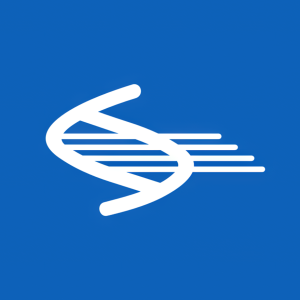Applied DNA Subsidiary LineaRx Receives Repeat Orders for LinearDNA, Adds Federally Funded Cancer Research Laboratory as CRO Customer
- Demand for Therapeutic DNA Drives Inquiries for Bulk LinearDNA -
LineaRx has recorded an uptick in CRO orders for LinearDNA in recent quarters. Although a limited number of CGTs are currently on the market,
Most evaluations of LinearDNA currently center on its use in the development of preclinical CAR T therapies, a use case highlighted in a recently published study that utilized LinearDNA in a non-viral manufacture of CD19-specific CAR T cells2. CRO customers are also evaluating LinearDNA for use in mRNA template manufacture, recombinant adeno-associated virus manufacture, and in vivo expression vectors.
Applied DNA and LineaRx CEO Dr.
Concluded
References:
-
Statement from then
FDA CommissionerScott Gottlieb , MD, andPeter Marks , MD, PhD, director of theCenter for Biologics Evaluation and Research on new policies to advance development of safe and effective cell and gene therapies. News release.FDA website.January 15, 2019 . https://www.fda.gov/news-events/press-announcements/statement-fda-commissioner-scott-gottlieb-md-and-peter-marks-md-phd-director-center-biologics. -
I. Kastankova, et alia, “Enzymatically produced piggyBac transposon vectors for efficient non-viral manufacturing of CD19-specific CAR T cells,” Mol Ther Methods
Clin Dev . 2021 Aug 26;23:119-127. doi: 10.1016/j.omtm.2021.08.006. eCollection 2021 Dec 10
About
LineaRx seeks to commercialize the biotherapeutic value of Applied DNA's deep expertise and experience in the design, manufacture, and chemical modification of DNA by large-scale polymerase chain reaction ("PCR") via its LinearDNA Platform.
The LinearDNA Platform is a proprietary large-scale PCR-based manufacturing platform that allows for the large-scale production of specific high-fidelity DNA sequences. Unlike plasmid-derived DNA, LinearDNA is free of adventitious DNA sequences and can be chemically modified to optimize the DNA for specific applications. The LinearDNA platform is currently being used by customers to manufacture DNA as components of in vitro diagnostic tests and for preclinical nucleic acid-based drug development in the fields of adoptive cell therapies (CAR T and TCR therapies), DNA vaccines (anti-viral and cancer), RNA therapies, clustered regularly interspaced short palindromic repeats-based (CRISPR) therapies and gene therapies, as well as the Company's COVID-19 veterinary vaccine candidate.
About
Applied DNA is commercializing LinearDNA™, its proprietary, large-scale polymerase chain reaction (“PCR”)-based manufacturing platform that allows for the large-scale production of specific DNA sequences.
The LinearDNA platform has utility in the nucleic acid-based in vitro diagnostics and preclinical nucleic acid-based drug development and manufacturing market. The platform is used to manufacture DNA for customers as components of in vitro diagnostic tests and for preclinical nucleic acid-based drug development in the fields of adoptive cell therapies (CAR T and TCR therapies), DNA vaccines (anti-viral and cancer), RNA therapies, clustered regularly interspaced short palindromic repeats (CRISPR) based therapies, and gene therapies. Applied DNA has also established a COVID-19 diagnostic and testing offering that is grounded in the Company’s deep expertise in DNA.
The LinearDNA platform also has non-biologic applications, such as supply chain security, anti-counterfeiting and anti-theft technology. Key end-markets include Gov/Mil, textiles, pharmaceuticals and nutraceuticals, and cannabis, among others.
Visit adnas.com for more information. Follow us on Twitter and LinkedIn. Join our mailing list.
The Company’s common stock is listed on NASDAQ under ticker symbol ‘APDN,’ and its publicly traded warrants are listed on OTC under ticker symbol ‘APPDW.’
Applied DNA is a member of the Russell Microcap® Index.
Forward-Looking Statements
The statements made by Applied DNA in this press release may be “forward-looking” in nature within the meaning of Section 27A of the Securities Act of 1933, Section 21E of the Securities Exchange Act of 1934 and the Private Securities Litigation Reform Act of 1995. Forward-looking statements describe Applied DNA’s future plans, projections, strategies and expectations, and are based on assumptions and involve a number of risks and uncertainties, many of which are beyond the control of Applied DNA. Actual results could differ materially from those projected due to, its history of net losses, limited financial resources, limited market acceptance, the uncertainties inherent in research and development, future clinical data and analysis, including whether any of Applied DNA’s or its partner’s therapeutic candidates will advance further in the preclinical research or clinical trial process, including receiving clearance from the
View source version on businesswire.com: https://www.businesswire.com/news/home/20211115005652/en/
Investor Contact:
Program Manager: Brian Viscount, 631-240-8877, brian.viscount@adnas.com
Web: www.adnas.com
Twitter: @APDN
Source:







